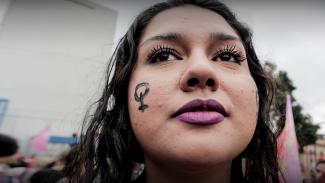All human rights are universal and interrelated
The very basis of the Universal Declaration of Human Rights (UDHR) is that all people are entitled to all human rights, equally and without discrimination. According to the Vienna Declaration and Programme of Action (VDPA), “[a]ll human rights are universal, indivisible and interdependent and interrelated.” These rights are linked, mutually dependent and mutually reinforcing.
Invocations of culture, religion and tradition can never justify violations of human rights.
General Comment 28 on Article 3 of the binding International Covenant on Civil and Political Rights (ICCPR) stresses that, “State parties should ensure that traditional, historical, religious or cultural attitudes are not used to justify violations of women’s right to equality.”
The VDPA affirms, “it is the duty of States, regardless of their political, economic and cultural systems, to promote and protect all human rights and fundamental freedoms.”
States have an obligation to abolish any laws, customs or practices that discriminate against women.
Under the binding Convention on the Elimination of All Forms of Discrimination Against Women (CEDAW), States must “take all appropriate measures, including legislation, to modify or abolish existing laws, regulations, customs and practices which constitute discrimination against women.”
CEDAW, the Maputo Protocol and the Convention of Belem do Para all set forth the obligation of States to eliminate customs, traditions and “all other practices which are based on the idea of inferiority or superiority of either of the sexes or on the stereotyped roles for women and men which legitimize or exacerbate violence against women.”
In addition to this, the VDPA stresses the importance of “the eradication of any conflicts which may arise between the rights of women and the harmful effects of certain traditional or customary practices, cultural prejudices and religious extremism.”
Everyone has the right to freedom of thought, conscience and belief.
The right to freedom of thought, conscience and religion upheld in the ICCPR includes the freedom to hold any kind of religious belief – or none at all. This protects the rights of individuals; religion itself does not have rights. The ICCPR also affirms that “[n]o one shall be subject to coercion which would impair [her or] his freedom to have or to adopt a religion or belief of his choice.”
Cultural diversity can only be protected when human rights are upheld.
According to the Convention on the Protection and Promotion of the Diversity of Cultural Expressions, cultural diversity can only be protected when fundamental freedoms are guaranteed12. Individuals have the right to interpret their own cultures. As the UN Special Rapporteur in the field of cultural rights states, “Viewing culture and attendant beliefs, including customs, traditions and religious interpretations, as ‘static’ obstructs the realization of women’s human rights.”
